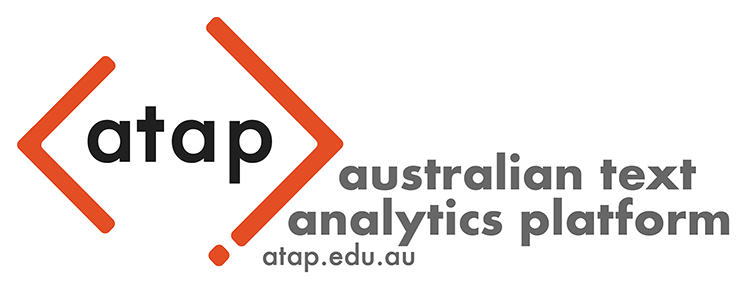Language Technology and Data Analysis Laboratory (LADAL)
LADAL aims to help develop computational and digital skills by providing information and practical, hands-on tutorials on data and text analytics as well as on statistical methods relevant for language research.
Recorded presentations and interviews - take a look!
GLAM Workbench The GLAM workbench is a collection of tools, tutorials, examples, and hacks created by Tim Sherratt to help you work with data from galleries, libraries, archives, and museums (the GLAM sector). The primary focus is Australia and New Zealand, but new collections are being added all the time.
The Sydney Corpus Lab aims to promote corpus linguistics in Australia, hosts a growing list of English-language corpora, and features regular blogs about corpus linguistic analysis.
CONSTELLATE Constellate is the text analytics service from the not-for-profit ITHAKA - the same people who brought you JSTOR and Portico. It is a platform for teaching, learning, and performing text analysis using the world’s leading archival repositories of scholarly and primary source content.
The Art of Literary Text Analysis
The Art of Literary Text Analysis (ALTA) has three objectives.
- First, to introduce concepts and methodologies for literary text analysis programming. It doesn’t assume you know how to program or how to use digital tools for analyzing texts.
- Second, to show a range of analytical techniques for the study of texts. While it cannot explain and demonstrate everything, it provides a starting point for humanists with links to other materials.
- Third, to provide utility notebooks you can use for operating on different texts. These are less well documented and combine ideas from the introductory notebooks.
Introduction to Cultural Analytics & Python is an online textbook by Melanie Walsh, which offers an introduction to the programming language Python that is specifically designed for people interested in the humanities and social sciences. This book demonstrates how Python can be used to study cultural materials such as song lyrics, short stories, newspaper articles, tweets, Reddit posts, and film screenplays. It also introduces computational methods such as web scraping, APIs, topic modeling, Named Entity Recognition (NER), network analysis, and mapping.
Text Analysis Pedagogy Institute is an open educational institute for the benefit of teachers (and aspiring teachers) of text analysis in the digital humanities.
The Programming Historian publishes novice-friendly, peer-reviewed tutorials that help humanists learn a wide range of digital tools, techniques, and workflows to facilitate research and teaching.
Quinn Dombrowski’s list of relevant courses and tutorials A collection of Jupyter notebooks in many human and computer languages for doing digital humanities.
